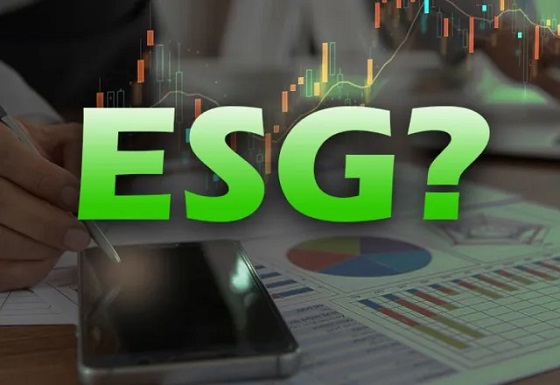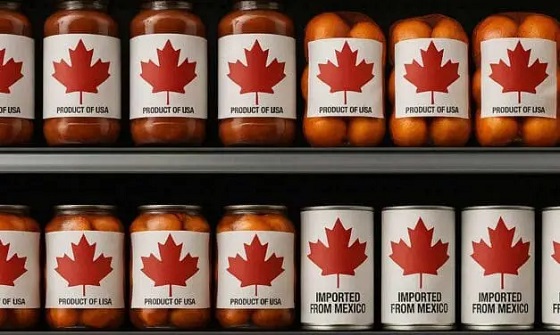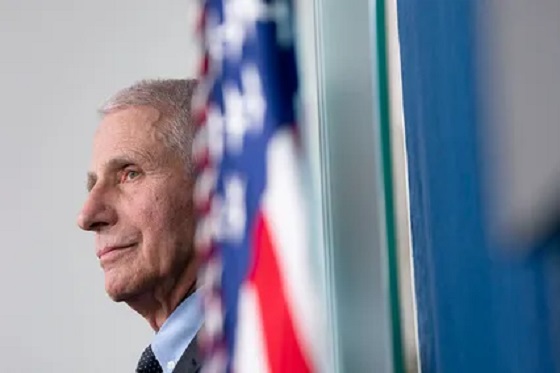Business
ESG: The Use of Non-Financial Metrics by the Investment Industry is a Lawsuit Waiting to Happen

Business
Canadians are fed up with grocers maple‑washing their food

This article supplied by Troy Media.
Patriotic packaging on foreign food isn’t clever marketing—it’s maple‑washing, and it’s eroding trust
Canadian grocery retailers are misleading shoppers about where their food really comes from. Behind the patriotic packaging lies a growing problem: “maple‑washing”—using Canadian symbols to suggest products are homegrown when they’re not. It’s eroding consumer trust and must end.
That’s why more Canadians are paying closer attention to what labels actually mean. Awareness around origin labelling has grown as people learn the difference between “Product of Canada,” “Made in Canada,” and “Prepared in Canada.” The Food and Drugs Act requires labels to be truthful and not misleading. A “Product of Canada” must contain at least 98 per cent Canadian ingredients and processing. “Made in Canada” applies when the last substantial transformation happened here, while “Prepared in Canada” covers processing, packaging or handling in Canada regardless of ingredient source.
The differences may seem technical, but they matter. A frozen lasagna labelled “Prepared in Canada,” for example, could be made with imported pasta, sauce and meat—packaged here but not truly Canadian. These rules give consumers the clarity they need to make informed choices.
Armed with this clarity, many Canadians have become more selective about what they buy. That vigilance has emerged alongside a surge in consumer nationalism, spurred partly by geopolitical tensions and anti‑American sentiment. Even with U.S. giants like Walmart, Costco and Amazon dominating Canadian retail, many shoppers are deliberately avoiding American food products. The impact has been significant: NielsenIQ reports an 8.5 per cent drop in sales of American food products in Canada over just a few months. In an industry where sales usually shift by fractions of a per cent, such a drop is extraordinary. It shows how quickly Canadians are voting with their wallets.
That kind of shift, rare outside of crises, caught many grocers off guard. The sudden change left supply chains long dependent on U.S. products under pressure, and store‑level labelling grew inconsistent. Early missteps—like maple leaves displayed beside imported goods—were excused as logistical oversights. But six months later, those excuses no longer hold. Persisting with misleading displays and false origin claims has crossed the line into misrepresentation. Instances of oranges or almonds labelled as Canadian, with prices quietly adjusted after complaints, show the problem is systemic, not accidental.
Regulators have stepped in. The Canadian Food Inspection Agency (CFIA) received 97 complaints about origin claims between November 2024 and mid‑July 2025. It investigated 91 cases and confirmed 29 violations. That level of scrutiny signals a growing intolerance for deceptive marketing.
The message to retailers is clear: this is not business as usual. Canadians have shown remarkable solidarity in supporting homegrown products during a time of economic strain and food insecurity. The least retailers can do is honour that trust by maintaining strict standards in labelling and merchandising. This is not about nationalism. It is about honesty. In today’s market, misleading customers is not only unethical but bad economics.
Consumers who suspect false origin claims should report them to the CFIA or to a retailer’s customer service. The CFIA generally investigates within 30 days. But the burden should not rest on shoppers to police grocery aisles. The responsibility lies with retailers to meet the moment with the same accountability they now expect from suppliers, regulators and consumers.
After months of consumer vigilance, it is up to grocers to end maple‑washing once and for all.
Dr. Sylvain Charlebois is a Canadian professor and researcher in food distribution and policy. He is senior director of the Agri-Food Analytics Lab at Dalhousie University and co-host of The Food Professor Podcast. He is frequently cited in the media for his insights on food prices, agricultural trends, and the global food supply chain.
Troy Media empowers Canadian community news outlets by providing independent, insightful analysis and commentary. Our mission is to support local media in helping Canadians stay informed and engaged by delivering reliable content that strengthens community connections and deepens understanding across the country.
Artificial Intelligence
Anti-DEI advocate Robby Starbuck reaches settlement with Meta over AI defamation

Quick Hit:
Conservative activist Robby Starbuck has settled his lawsuit against Meta over claims its AI chatbot defamed him, falsely linking him to Jan. 6 and other discredited narratives. As part of the deal, he’ll advise Meta on reducing political bias and misinformation in its AI models.
Key Details:
- Starbuck sued Meta in April after its AI chatbot allegedly labeled him a “White nationalist” who was arrested on Jan. 6 and suggested he should lose custody of his children.
- As part of the settlement, Starbuck will work with Meta’s Product Policy team to improve AI fairness and accuracy, especially on political and ideological topics.
- The deal follows Meta’s January decision under President Donald Trump’s administration to scrap its DEI policies, part of broader efforts to address concerns about anti-conservative bias.
As many of you know, I sued Meta early this year due to chatbot responses about me that were 100% false. Today @Meta and I are announcing an amicable resolution to my lawsuit. Let me give you some details…
When I filed my defamation suit, Meta reached out to me immediately,… pic.twitter.com/b3W1rVT4d2
— Robby Starbuck (@robbystarbuck) August 8, 2025
Diving Deeper:
The dispute began in August 2024 when an X user surfaced several examples of Meta’s AI chatbot spreading damaging misinformation about Robby Starbuck. Among the claims: that he participated in the Jan. 6 Capitol riot, was connected to QAnon, and opposed vaccines. Starbuck’s own investigation uncovered more falsehoods, leading him to pursue legal action after attempts to resolve the matter privately with Meta failed.
Filed in Delaware Superior Court, the lawsuit alleged defamation and reputational harm, noting the AI went so far as to recommend he lose custody of his children on grounds that he was a “danger” to them. Starbuck — known for his activism against DEI initiatives — framed the case as a broader warning about the dangers of political bias embedded in artificial intelligence systems.
Under the settlement, Starbuck will now have a formal role advising Meta’s Product Policy team, a move both sides say will strengthen the accuracy of Meta AI and help curb ideological slants. “I’m extraordinarily pleased with how Meta and I resolved this issue,” Starbuck told Fox News Digital. “Resolving this is going to result in big wins that I believe will set an example for ethical AI across the industry.”
Meta has faced similar bias accusations as other AI developers. Google’s Gemini, for example, was criticized for portraying Memorial Day as controversial and producing racially inaccurate historical images. OpenAI’s ChatGPT was previously caught refusing to praise Donald Trump while readily praising Kamala Harris or Joe Biden — an imbalance the company later pledged to address.
Since President Trump’s return to the White House, Meta has taken steps to address perceived anti-conservative leanings. In January, it ended DEI programs and elevated Joel Kaplan, a former Republican political strategist, as chief global affairs officer. Kaplan argued the move would ensure the company recruits “the most talented people” without ideological filters.
Starbuck said he intends to use his new position to protect Americans of all political affiliations from AI bias but emphasized that ensuring fairness for conservatives will remain his top priority. “I think a tech leader like Meta working with me is a critically important step to producing a product that’s fair to everyone,” he said. “What we do to improve AI training could become an industry standard.”
-

 Alberta20 hours ago
Alberta20 hours agoA misinformation bubble in action—Egale Canada v. Alberta
-

 Energy19 hours ago
Energy19 hours agoEnergy investors see less opportunity in Canada compared to the United States
-

 Dan McTeague18 hours ago
Dan McTeague18 hours agoTime is running out, Mr. Carney…
-

 COVID-194 hours ago
COVID-194 hours agoAgencies ordered to delete worker COVID vaccine records
-

 Daily Caller7 hours ago
Daily Caller7 hours agoUS Judge Deals Devastating Blow to Climate Lawfare Campaign against Oil and Gas Producers
-

 Alberta11 hours ago
Alberta11 hours agoAlberta fights court order blocking ban on transgender surgeries, drugs for children
-

 Bruce Dowbiggin6 hours ago
Bruce Dowbiggin6 hours agoGolf’s Best 2025 Moment Is A Film That Endlessly Mocks The Game
-

 Crime9 hours ago
Crime9 hours ago‘We’re Taking It Back’: Trump Deploying National Guard To Streets Of Nation’s Capital





